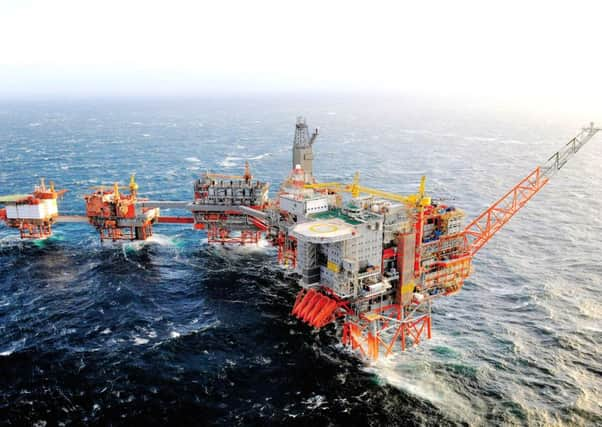Martin Flanagan: oil and commodities slump


Oil prices tumbled again last week, hitting a seven-year low of under $39 on Friday. Some energy bears think it might drop as far as a completely project-abandoning $20 a barrel next year as Opec continues to play hardball on quotas in a transparently panicky attempt to kill the longer-term threat from US shale.
Meanwhile, nearly one-third of the shares in struggling platinum miner Lonmin’s deeply-discounted rescue rights issue were left with the underwriters last week, hardly a gesture of faith in the resilience of the commodities industry in these testing times.
Advertisement
Hide AdAdvertisement
Hide AdAnother mining giant, Anglo American, has revealed it is to slash its workforce by 85,000, or two-thirds, following the collapse in commodity prices. That sent its share price to record lows this week. A string of other mining companies saw mid-single digit falls in their share prices on Friday as the backdrop looks increasingly bleak.
The wider blue-chip FTSE 100 index closed the week beneath the psychologically-important 6,000 for the first time since last September. The oil and commodity contagion to the wider market is unsurprising.
Oil and commodities are a major slug of the Footsie these days, the index now light years away from the 1990s and new millennium when banking (now fallen), telecoms (now more fragmented) and technology (now more distrusted) ruled the stock market roost. With commodities, there is no easy solution. China has been the buyer of first and last resort, turning Australia in particular, where much of the world’s mineral wealth is found, virtually into a Sino quarry.
But the Chinese economy has come off the boil, even if still impressive by western standards. The Chinese authorities are having to weigh the benefits of the country’s industrial locomotive, which devours foreign commodities, with its undeniably acute environmental pollution.
A policy tipping-point may be being reached, and who’s to say it will be good news for foreign producers. Investors can be forgiven for thinking they would be catching a falling knife if they decided the oil and commodities shares had reached their nadir and were now oversold and represented value.
Sometimes things are what they say on the tin. We were talking about a global glut of oil well over a year ago. Capital spending was slashed by the industry, typified by the North Sea contraction, and a formidable number of jobs were lost.
But the pressures on the industry now, with Opec increasingly a babble of dissenting tongues and the International Energy Agency predicting oil over-supply until near the end of 2016, have intensified.
The International Monetary Fund (IMF) has pointed out that the global macro-economic portents look concerning at best, disturbing at worst. And oil and commodities live or die by the big picture.